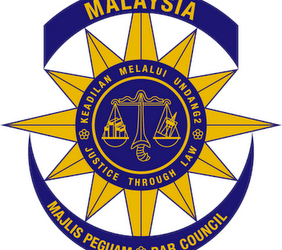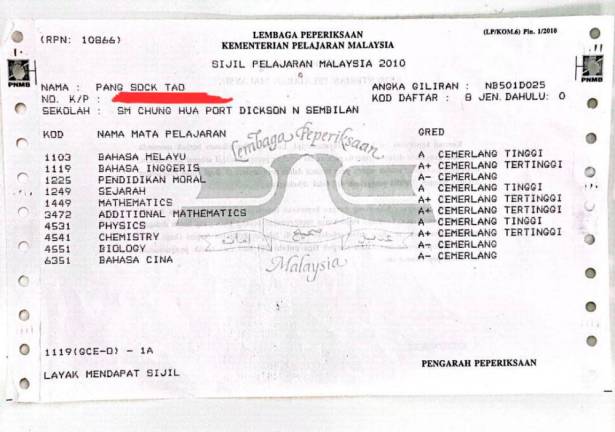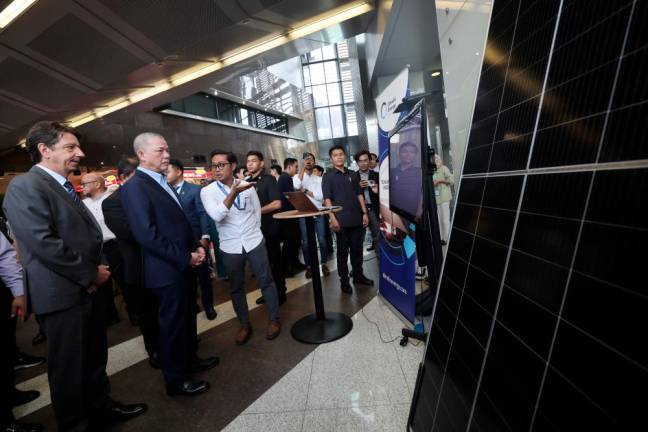I RECALL my experiences working for a stubborn individual at a previous workplace; it was tedious and frustrating. We all know a handful of them and I imagine many would agree that they are ridiculously mind-boggling to deal with.
No matter how much you attempt to convince them about something, they will proudly showcase their innate ability to shut out the world and push ahead with their own plans, no matter how erratic or outrightly repugnant that may seem to someone who has a broader perspective on the issue at hand.
To members of the legal profession in Malaysia, however, that “person” is neither a particular client nor any member of the judiciary but a regulatory body that purports to “protect the interests of the legal profession” that is increasingly growing out of touch with reality.
In early July, where many parts of the Klang Valley were placed under an enhanced movement control order and business premises in these areas were ordered to shut apart from those that are providing “essential services”, the Bar Council was quick to respond on July 3 by pleading to the Legal Affairs Division of the Prime Minister’s Office that law firms in these areas be permitted to operate.
The Bar Council’s plea was rejected by the National Security Council, citing the “worrying high numbers of Covid-19 cases” in those areas. On that day, 6,658 new positive cases and 107 new deaths were reported. That should have been an obvious and compelling impetus for the profession to begin considering the merits of moving towards paperless and virtual working environments, and find ways to achieve that – this the Bar Council did not do.
Instead, in the most shameless manner possible, they pleaded to the Prime Minister’s Office a second time to argue that the legal services should be regarded as an “essential service”, and that law firms be allowed to operate within the parameters of “stricter standard operating procedures”, apparently without further elaboration about what they really meant by “stricter”.
Despite the criticisms levelled by various factions of the legal profession and their family members against the Bar Council, many were eventually dumbfounded as the Prime Minister’s Office finally gave the green light to law firms to operate, with the condition that only two employees, or 20% of the total workforce of the firm, are allowed to work from the office.
This arrangement is far from a compromise – lawyers and members of the public stand to suffer from unnecessary waste of resources and diminished work productivity, while the health risks to themselves and their family members increase.
I cannot help but ask: Why? What is to be achieved from this appalling measure? The Bar Council’s course of action has once again cast a shadow of doubt over their credibility.
Malaysia is in the midst of grappling with its failure to contain the pandemic, state and private hospitals and health centres are overstretched beyond their capacities and Covid-19 death tolls over the past two months alone has overtaken the total figures from the beginning of the pandemic by almost 3.5 times (1,551 deaths as of May 3, and 5,432 deaths as of July 3).
Yet, the message conveyed by the Bar Council in their relentless push for law firms to be allowed to operate is an unequivocal “we do not care, deal with it. You or your loved ones may die from the risk of increased exposure but that is not our concern”.
Apart from criminal cases, judicial review and interlocutory applications that are urgent, it is hard to grasp how legal services are deemed “essential”.
One only has to turn to England to witness a stark contrast at how the regulatory bodies for lawyers have taken a radically different approach that prioritises the members of their own profession in the midst of a raging pandemic.
In response to a survey undertaken by the Bar Council of England and Wales in 2020, their head of services stated that the Bar Council “plans to support wholeheartedly” the initiative of barristers’ chambers to move to paperless and virtual working environments, considering the state of the pandemic in the UK, and has indicated a commitment to endorse a hybrid working environment.
The Law Society of England and Wales had expressed a similar commitment to encourage solicitors and trainees to continue “to work from home wherever possible”, whilst collaborating with the Solicitors’ Regulation Authority to produce remote work guidelines across many core areas of practice and day-to-day operational matters that were once thought to be impossible to be carried out remotely.
Today, provisions have been made for the remote execution of wills, conveyancing and the supervision of trainee solicitors away from office. This is not the first time England has supplied us with examples of how we can move towards a more progressive, humane legal profession.
In January 2020, the Bar Standards Board announced that the minimum pupillage allowance (yes, pupil barristers in England and Wales have minimum allowances) will be increased to £18,866 (RM108,809) per annum for pupillages in London and £16,322 per annum for pupillages outside London.
The recent track record of the regulatory bodies of the legal profession in England and Wales include a qualitative study into the reasons and ways to tackle bullying, discrimination and harassment at the Bar, and actively demanding reasons for inconsistencies in sanctions by the Bar Tribunals and Adjudication Service (their equivalent of our Advocates and Solicitors’ Disciplinary Board for barristers) against barristers found guilty of sexual misconduct.
The initiative demonstrated by our Bar Council, in comparison, is lacklustre and disappointing with regard to all the examples provided above. They have shown zero desire to cultivate an environment for the legal profession in Malaysia to be more accountable to new entrants and adept at technological advancement so as to benefit their members and the public; instead they have demonstrated a sheer disdain to move away from their old ways and the ability to fight tooth and nail to guard an ineffective, inefficient model of work that has long gone out of fashion in the modern world.
As is the case with every other entity that seeks to promote the interest of a particular group of individuals, be it the human resource department of a multinational company or members of a political party, the necessary first step is to understand what those individuals really need by means of active consultation.
This the Bar Council did not do. Not even a handful of lawyers can recall the last time they had consulted with members to find ways to protect their interests. Instead, they made it their priority to issue a circular telling pupils when they can or cannot post photos of themselves on social media.
If the Bar Council continues to purport to represent the interest of lawyers, it has clearly demonstrated that it is no longer fit for this role. Perhaps the time is ripe for them to reconsider their priority, but I fear these will only fall on deaf ears in the ranks of their ivory towers.
Jason Kang had recently completed pupillage and decided to cease a career in legal practice. He is a critic of the Malaysian legal profession’s rigid adherence to hierarchy, its gratification of inhumane work conditions and its inability to adapt to a changing world and technologies, and new approaches to work. Comments: letters@thesundaily.com










